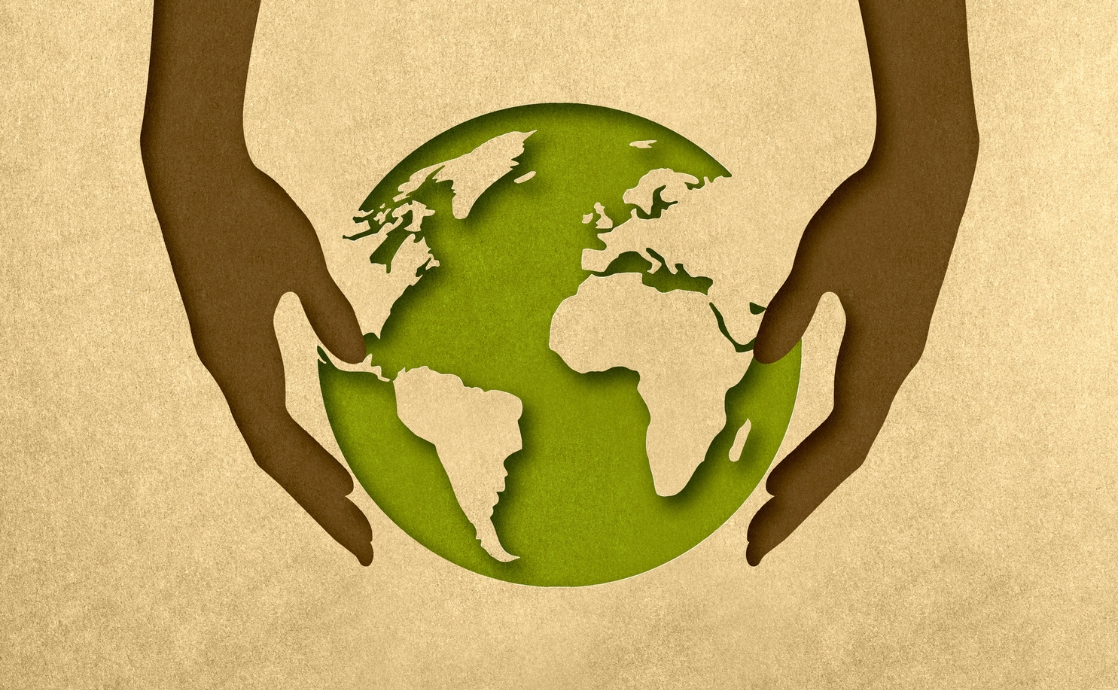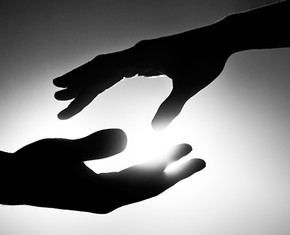The views expressed in our content reflect individual perspectives and do not represent the authoritative views of the Baha'i Faith.
I have spent precisely half of my life in the global East, and the other half living in the West. East and West functioned as schools of learning for me, educating me in unique ways.
I feel like a lucky plant rooted in the soil of the East and watered and nurtured by the West, and the recipient of the best of both worlds.
History is full of records of the past contributions of the East in culture, art, music, architecture, sciences and literature. The physical evidence of some of the East’s rich cultures can still be seen today. The East is the birthplace of Zoroastrianism, Hinduism, Judaism, Islam, Buddhism, Christianity and many more religions. However, in recent centuries it has fallen behind the West in scientific discoveries and innovations.
RELATED: The Ancient Connections Between East and West
On the other hand, the West has been the birthplace of many scientific discoveries that have advanced humanity and led to a better and more prosperous standard of living. Western science has discovered the smallest parts of atoms, mapped the DNA of the human body, and sent spaceships to distant planets looking for signs of life.
If I could describe the relation between East and West simplistically, I would use the metaphor of the heart and brain in the human body. The East, with its deep roots in spirituality, functions like the heart, pumping the lifeblood of guidance and values; and the West, with its advancements in science and finance, functions like the brain.
Ultimately, they need and complement one another. The health of the body rests on them both. The brain sends signals to the heart to pump, and the heart supplies the brain with oxygen.
In his numerous talks and writings, Abdu’l-Baha mentioned the need for East and West to reach out to each other, as he did in this speech he gave in Paris:
In these days the East is in need of material progress and the West is in want of a spiritual idea. It would be well for the West to turn to the East for illumination, and to give in exchange its scientific knowledge. There must be this interchange of gifts.
The East and the West must unite to give to each other what is lacking. This union will bring about a true civilization, where the spiritual is expressed and carried out in the material. Receiving thus the one from the other the greatest harmony will prevail, all people will be united, a state of great perfection will be attained, there will be a firm cementing, and this world will become a shining mirror for the reflection of the attributes of God.
I don’t think I fully understood the implications of this concept until my local Baha’i community in Canada decided to adopt the Baha’i community of Jaipur in India (where I spent many years) as its sister community. We wanted to join forces and share experiences. When I suggested the idea to my community and to my Baha’i friends in Jaipur, they were all delighted and wholeheartedly welcomed it.
So we had an initial online meeting to get to know each other better. A few individuals decided to communicate directly and think of ways to connect some of the youth of the two communities.
I was so surprised to hear that some of the Indian Baha’is in Jaipur thought they would never see a Baha’i from the West in their lifetime, and how fortunate they were to have this blessing. Our Baha’i friends here in British Columbia were in awe of seeing the friends from the East and spending a little time together. This confirmed, for all of us, what the Baha’i teachings say about uniting the East and the West, as in this talk from Abdu’l-Baha encouraging the Western Baha’is to interact with their Baha’i family in the East:
Today, the Baha’is of the East are longing with deep desire to see you face to face. Their highest hope and fondest wish is that the day may come when they will be gathered together in an assembly with you. Consider well the power that accomplished this wonderful transformation.
I saw the fruition of this process when our two communities started consulting to do a project together, which resulted in being virtual guests at the beautiful and elaborate celebration of their 100th anniversary of the Ascension of Abdu’l-Baha.
Soon, we realized that we are lucky in the West to have the financial means, but we lack human resources in our small community. In contrast, our friends in Jaipur have ample human resources, but they struggle with the finances to carry out their activities.
Our community decided to help with their efforts by contributing financially. We felt that sustainable support was the best way rather than a one-time contribution, and we have since been sending our share of responsibility for the activities.
RELATED: Why Did So Many Major Religions Begin in the East?
Each member of our community feels a sense of pride and accomplishment due to this beautiful, world-embracing involvement and experience, helping with Baha’i activities such as children’s classes, junior youth activities, and devotional gatherings there. Friends in Jaipur are very grateful for our financial support.
Although humanity is closely connected by physical means, the hearts of people can be very distant from each other. Many walls, such as skin color, nationality, religion, political views, and language, hinder the East and the West from getting closer.
But whether we come from the East or the West, we each recognize that our world is getting smaller thanks to improvements in communication and transportation. This has highlighted the need for unified efforts by all countries and combining resources for the betterment of the world.
I am not sure that our community’s small attempt to reach out to a community in the East will reduce the weight of the world’s problems. Still, it surely has given us a sense of pride that at least we are working to cooperate with our brothers and sisters on the other side of the planet.
















Comments
Sign in or create an account
Continue with Googleor